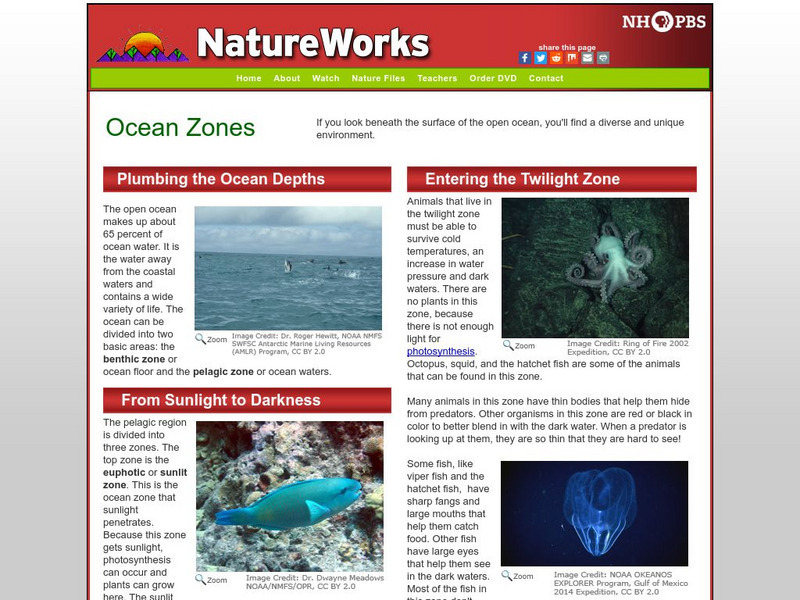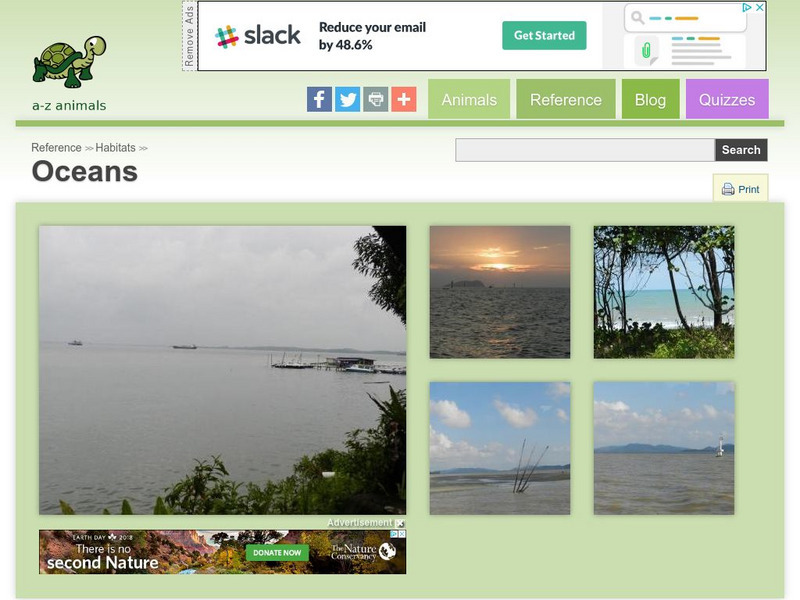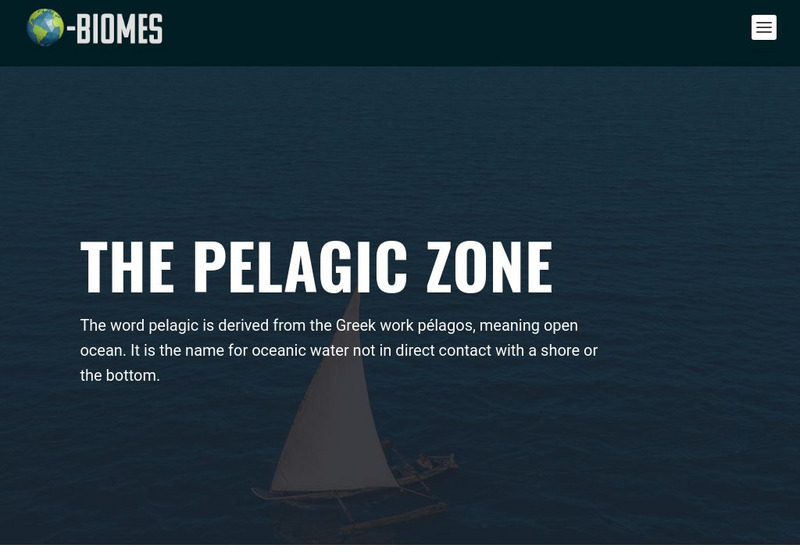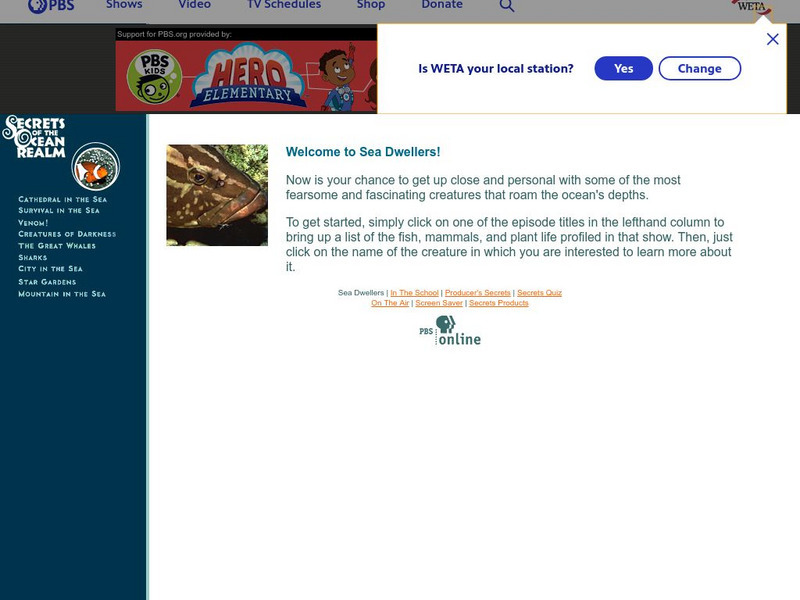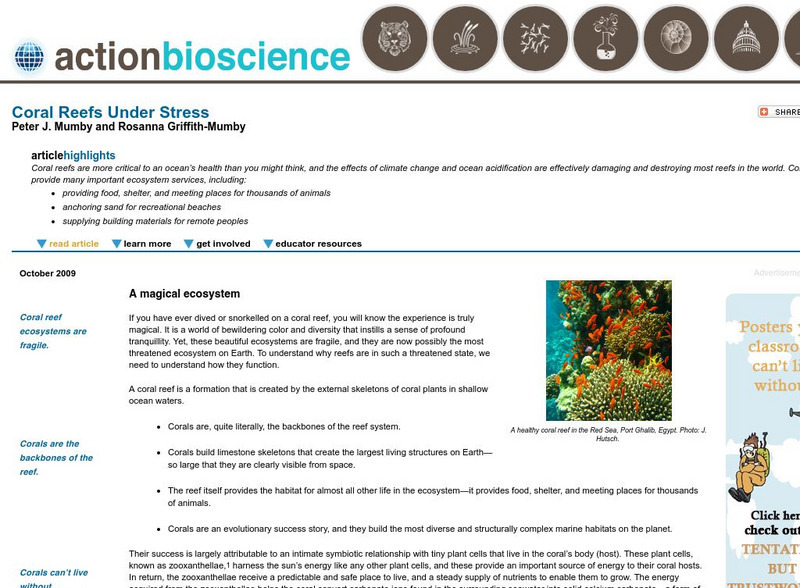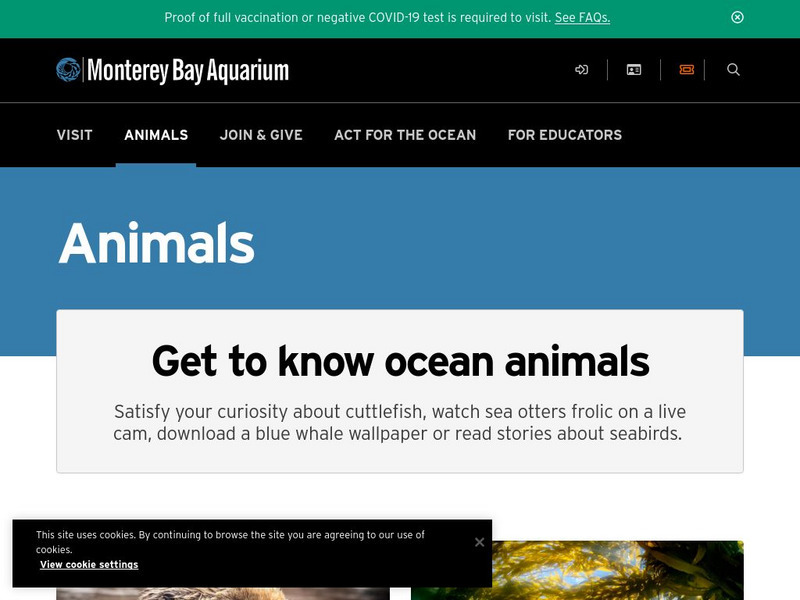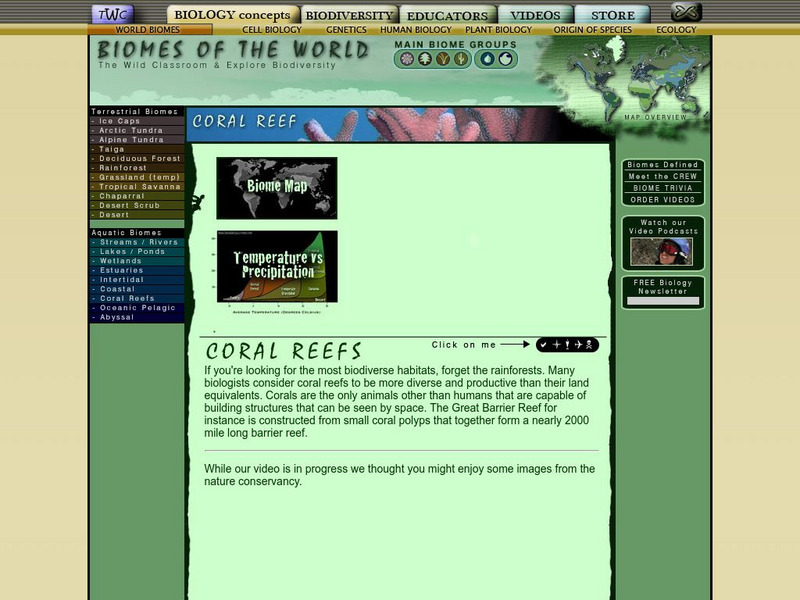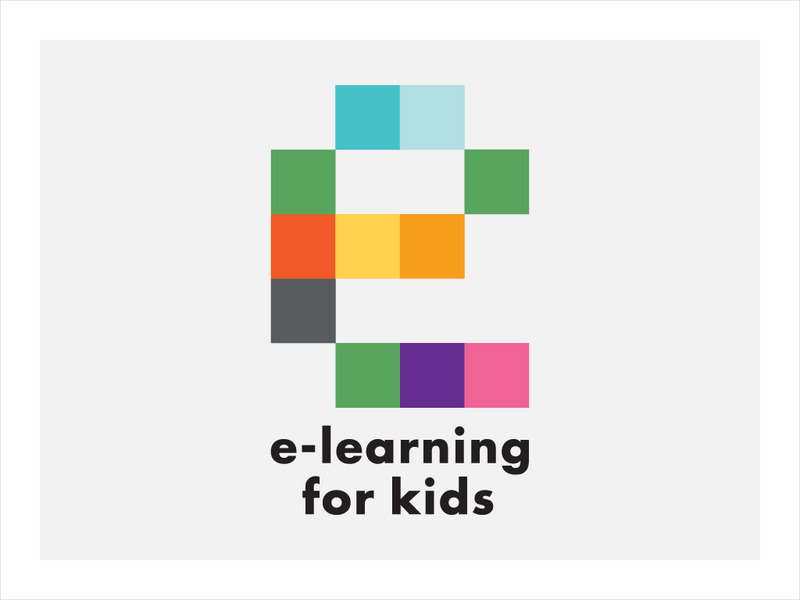Hi, what do you want to do?
Science Struck
Science Struck: Understanding the Ocean Ecosystem
Describes the two organisms capable of photosynthesis in an ocean ecosystem, the different ocean zones and the plants and animals that live in them, some facts about the ocean, and the five oceans of the world.
The Wild Classroom
The Wild Classroom: Biomes of the World: Coastal Ocean Biome
Learn about the coastal ecosystem. Find out about plants, animals, adaptations, and conservation efforts.
PBS
Nh Pbs: Nature Works: Ocean Zones
Discover more about the underocean environment at this site that surveys animals, environmental factors such as light and temperature, currents, animals, plants, and the like.
Boise State University
Boise State University: Ocean Exploration: Abyssopelagic (Abyssal) Zone
Learn about the very cold, dark region of the ocean known as the abyss. Includes information on the origin of the name of this ocean zone, as well as information on its depth and animal life.
Smithsonian Institution
National Museum of Natural History: Ocean Planet
Detailed website that was a companion to a 1995 traveling exhibit of the Smithsonian. Links to lesson plans and other educational materials are at the bottom of the page. Enter the exhibition to explore the world of the ocean.
A-Z Animals
A Z Animals: Reference: Habitats: Oceans
Learn about the ocean ecosystem, and how its characteristics affect the life within it.
E-learning for Kids
E Learning for Kids: Science: Pacific Ocean: What Can We Find on a Beach?
Josephine lives on the Marshall Islands. Follow her to the beach and find out what kinds of plants and animals live there.
The Wild Classroom
The Wild Classroom: Biomes of the World: Oceanic Pelagic Biome
Learn about the oceanic pelagic ecosystem. Find out about plants, animals, adaptations, and conservation efforts.
The Wild Classroom
The Wild Classroom: Biomes of the World: The Deep Sea Biome
Learn all about the abyssal ocean ecosystem. Find out about plants, animals, adaptations, and conservation efforts.
American Institute of Biological Sciences
Action Bioscience: Coral Reefs Under Stress
Coral reefs, home to many vibrant plants and animals, are suffering from the affects of climate change and the increase of acid in ocean waters. Delve into the benefits and concerns of these beautiful ecosystems.
NOAA
Noaa: Ocean Service Education: Corals
This Coral Tutorial is an excellent resource with diagrams, pictures, animations and short videos. All aspects of coral biology are discussed. As an added benefit, pdf versions of the site are available along with a subject review...
Monterey Bay Aquarium
Monterey Bay Aquarium: Animal Guide
An extensive image-rich field guide to marine habitats and inhabitants, with detailed descriptions and "cool facts" about each.
The Association of the British Pharmaceutical Industry
Abpi: Human and Animal Habitats
An interactive learning game where students answer whether or not certain environments would be suitable for different animals. Printable worksheets are available for review at the end of the activity.
Enchanted Learning
Enchanted Learning: Biomes
Discover the hidden treasures in the different habitats on the earth! The earth is filled with many biomes. Examples of different biomes are listed and include hyperlinks to additional information such as the animals found there.
Globio
Glossopedia: Environments
This article defines "environment" as a collection of animals and plants in a specific landscape and climate. The concept of differing types of environments is introduced. The impact of humans on environments and all environments'...
The Wild Classroom
The Wild Classroom: Biomes of the World: Coral Reef Biome
Learn about the coral reef ecosystem. Find out about plants, animals, adaptations, and conservation efforts.
The Wild Classroom
The Wild Classroom: Biomes of the World: Intertidal Zone
Learn about the intertidal ecosystem. Find out about plants, animals, adaptations, and conservation efforts.
Science Struck
Science Struck: A Helpful Guide to Understand the Photic Zone
The photic zone is the upper layer of the ocean where sunlight can penetrate and support photosynthesis. This article explains the characteristics of this zone, the food chain that exists there, the adaptations of the plants and animals,...
Wikimedia
Wikipedia: Bathyal Zone
Learn where this ocean zone is located, average temperature and the unique traits of the animals that reside there.
Science Struck
Science Struck: Facts About the Marine Biome
Describes the characteristics of the marine biome, the plants and animals that live in each of the four ocean zones, coral reefs and estuaries, the climate of the marine biome, and the marine food web.
E-learning for Kids
E Learning for Kids: Science: Antilles: What Are the Environmental Factors of a Habitat?
Join Sam on his journey to the bottom of the sea. Explore beautiful animals living in the sea, and learn about the importance of a well-balanced habitat.
Curated OER
Coral Reef
Discover more about the underocean environment at this site that surveys animals, environmental factors such as light and temperature, currents, animals, plants, and the like.
E-learning for Kids
E Learning for Kids: Science: Australia: How Do Environments Affect Living Things?
Noah lives near the Great Barrier Reef. Go explore this diverse habitat with him.







